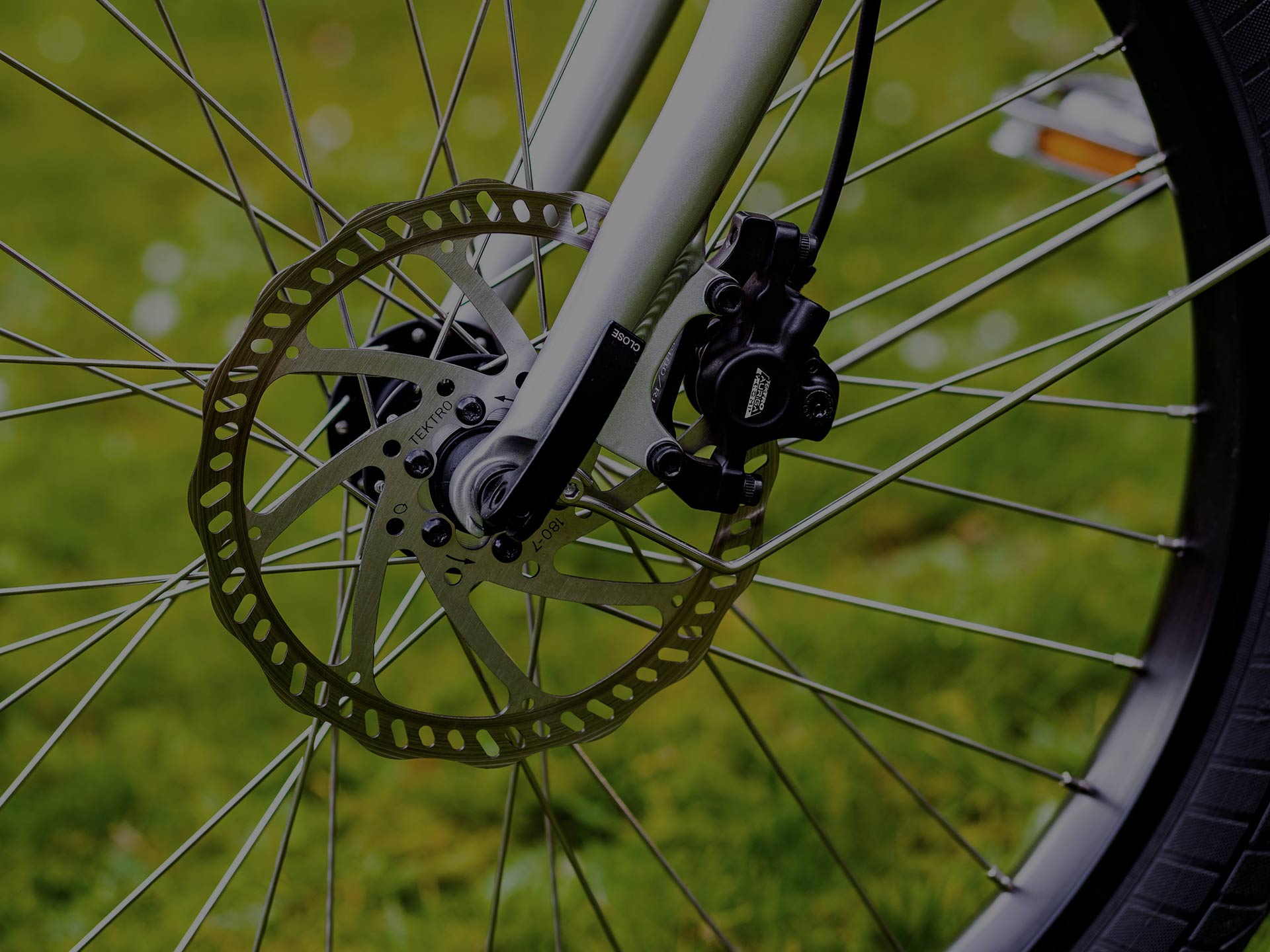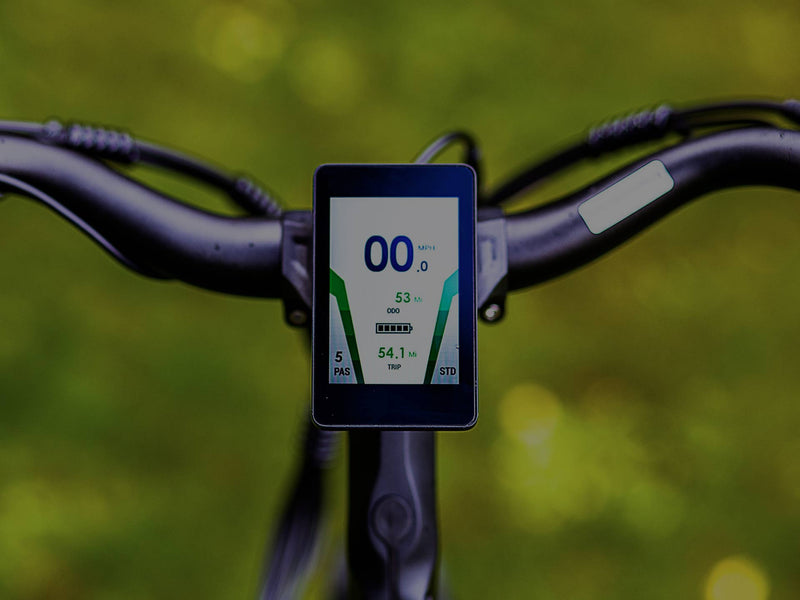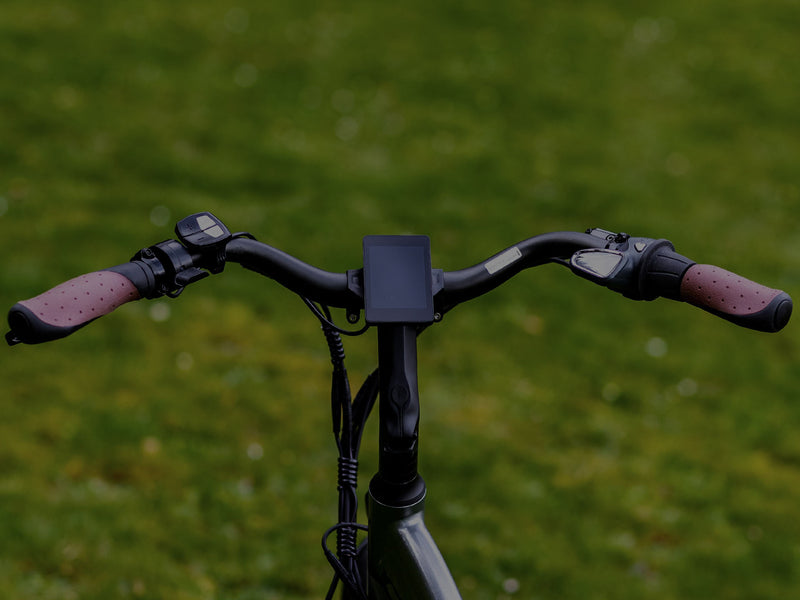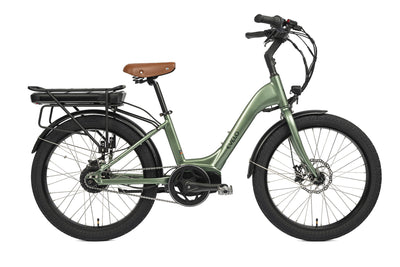ELECTRIC BIKES: PROS AND CONS
As we begin wrapping up our discussion of electric bikes, it will be helpful to provide an overview of some of the most important information we’ve covered so far. To do this, Section 9 will summarize much of what you’ve read, bringing it all together into a comprehensive list of the pros and cons involved with owning an electric bike. As with everything else in this buyer’s guide, this list will be helpful to you as you navigate the world of electric bicycles in search of the perfect bike.
PROS
• Cheap transportation - Especially when compared to other types of transportation, electric bikes are very clearly one of the cheapest ways to get around. With an electric bike, you don’t need to worry about paying for any sort of special license or registration, you don’t have to pay for parking, and the cost of recharging a battery is immensely cheaper than both public transit fares and a tank of gas.
• Improved health - Using an electric bike as part of your regular travel is a great way to introduce some physical activity to your everyday routine, and can contribute significantly to improved overall health. By using an electric bike, you guarantee yourself time and space to exercise your muscles, lungs, and heart while enjoying a bit of fresh air.
• Exercise that’s right for you - Electric bikes can be especially empowering for those who would like to exercise more, but who have a health condition that limits the amount of physical activity they can perform. By controlling the amount of assistance they receive from the motor, e-bike riders can tailor the difficulty level of their rides to meet their unique health and fitness needs. This can be especially helpful to those with joint pain, exercise-induced asthma, heart or lung problems, or who are overweight.
• Enjoy time with friends and family - For many people, electric bikes make it possible to spend more time having fun with friends and family members, allowing them to join in on recreational bike rides. If you’re new to cycling or struggle keeping up, an electric bike may be the key to getting out more often to enjoy leisure rides with those you love.
• Travel further - The assistance provided by the electric motor enables e-bike riders to go further than they might otherwise be able to. The amount of effort required to cover 10 miles on a conventional bike, for example, can carry riders closer to 20 miles when combined with the power generated by an e-bike motor.
• Sweat-free commutes - One of the biggest drawbacks to using a bicycle for your daily commutes is showing up at your destination hot, sweaty, and uncomfortable. By using an electric bike, however, you can complete the exact same rides while exerting only a portion of the physical effort. Electric bikes make two-wheeled commuting a much more viable possibility for many people, letting riders enjoy all the benefits of commuting by bicycle while eliminating many of its messiest drawbacks.
• Tackle obstacles - The extra boost of power provided by an e-bike’s motor make it possible to zip up hills, plow through headwinds, and tackle any other obstacle you might encounter on a bike ride without wearing yourself out or getting burned out. As a result, electric bikes provide a convenient, accessible, extremely enjoyable cycling experience to a wide and diverse range of riders.
CONS
• Significant upfront investment - It’s not uncommon for people learning about electric bikes for the first time to be surprised by the cost of an e-bike, which typically ranges anywhere from $1,000 to $10,000. And while there’s no getting around the fact that using an e-bike requires a significant upfront investment, the good news is that once you’ve spent the money to purchase a high quality electric bike, there are relatively few expenses required to operate it. Similarly, the cost of purchasing an electric bike is actually not too bad when compared to what it costs to buy a car or even a high-end bicycle.
• Heavier than conventional bikes - Even after dramatic improvements in e-bike technologies and components, electric bikes remain noticeably heavier than conventional bicycles. This becomes a problem primarily when you’re trying to transport the bike or when you’re out on a ride and the battery dies.
• More specialized, complex parts - While the majority of e-bike parts are standard bicycle components that are easy to find, replace, and repair, there are also a handful of highly specialized components that are unique to e-bikes. Because these parts tend to be a bit more complicated and can sometimes be harder to find, it can often be more difficult and more expensive to repair a specialized e-bike component than a more conventional bicycle part.
• Confusing legal status - Because electric bikes are still relatively new to the U.S., there can be a bit of confusion when it comes to the way they’re viewed by the law. In general, electric bikes with a maximum speed of 20 mph and motors rated at less than 750 watts are treated the same as any other bicycle, which means they can be ridden on bike paths and in bike lanes and don’t require any special licensing or registration. There are some places, though, that have a different set of rules that may limit or change the way you’re allowed to use your electric bike. For this reason, it’s always a good idea to check the rules in your specific city and state when riding an electric bike.
The table below summarizes the primary advantages and disadvantages of using an electric bike, giving you a quick, at a glance resource to use as you consider becoming an e-bike owner:
| Pros | Cons |
|---|---|
| Cheap transportation | Expensive initial investment |
| Improved health | Heavier than conventional bicycles |
| Tailor exercise to your needs | Specialized, complex parts |
| Time with family and friends | Potentially confusing legal status |
| Increased range | |
| Sweat-free commute | |
| Tackle obstacles for easy ride |
FINAL THOUGHTS
Electric bikes can help riders of all ages, skills and physical abilities live more active lives but they are not perfect. Being aware of the ways that e-bike use can be incredibly beneficial, as well as some of the challenges involved with buying and using an e-bike, will make you a well-informed, savvy consumer, ready to make the best possible decision when it comes time to select and purchase an e-bike of your own.
As you make this decision, keep in mind that while there are certainly disadvantages to owning and using an electric bike, it seems that many people have decided that the advantages of riding an e-bike far outweigh any potential drawbacks. Perhaps this is one reason why e-bikes are fast becoming one of the most popular and widely used forms of transportation in the world today.






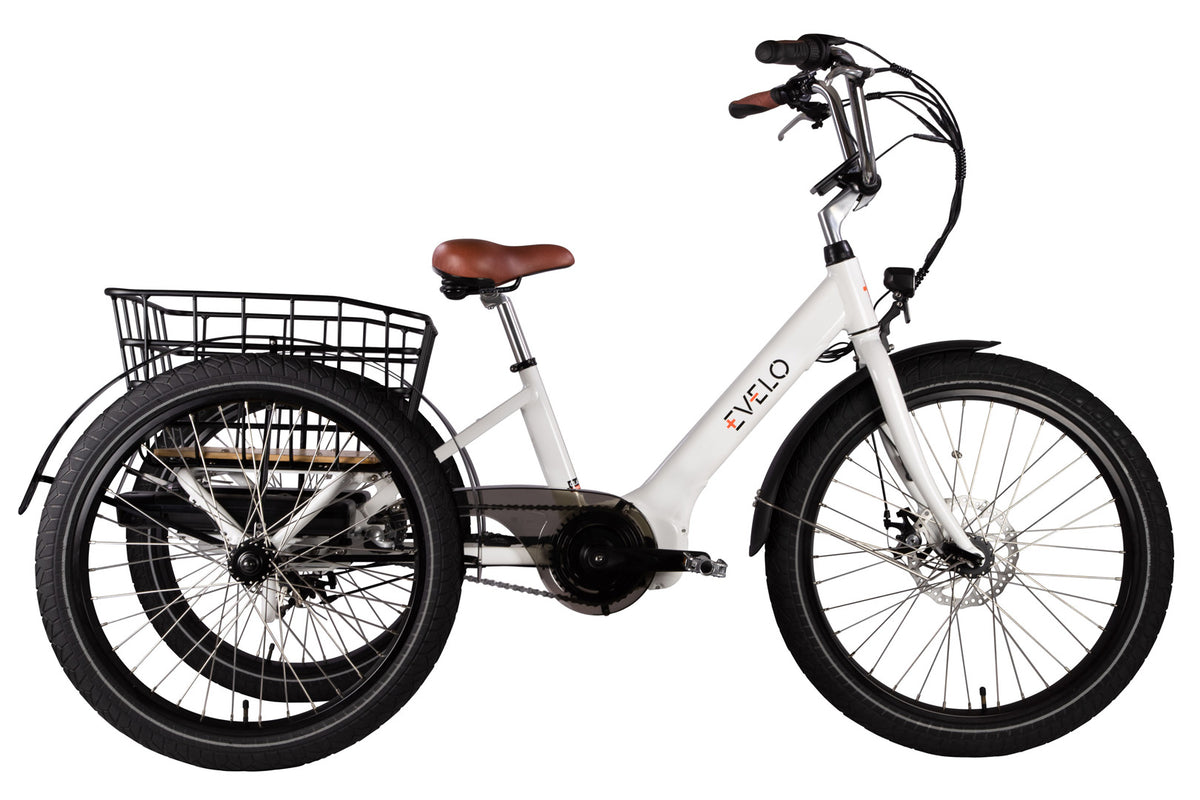
 Easy Assembly
Easy Assembly
 Service and Repairs
Service and Repairs
 Ebike Articles & Content
Ebike Articles & Content
